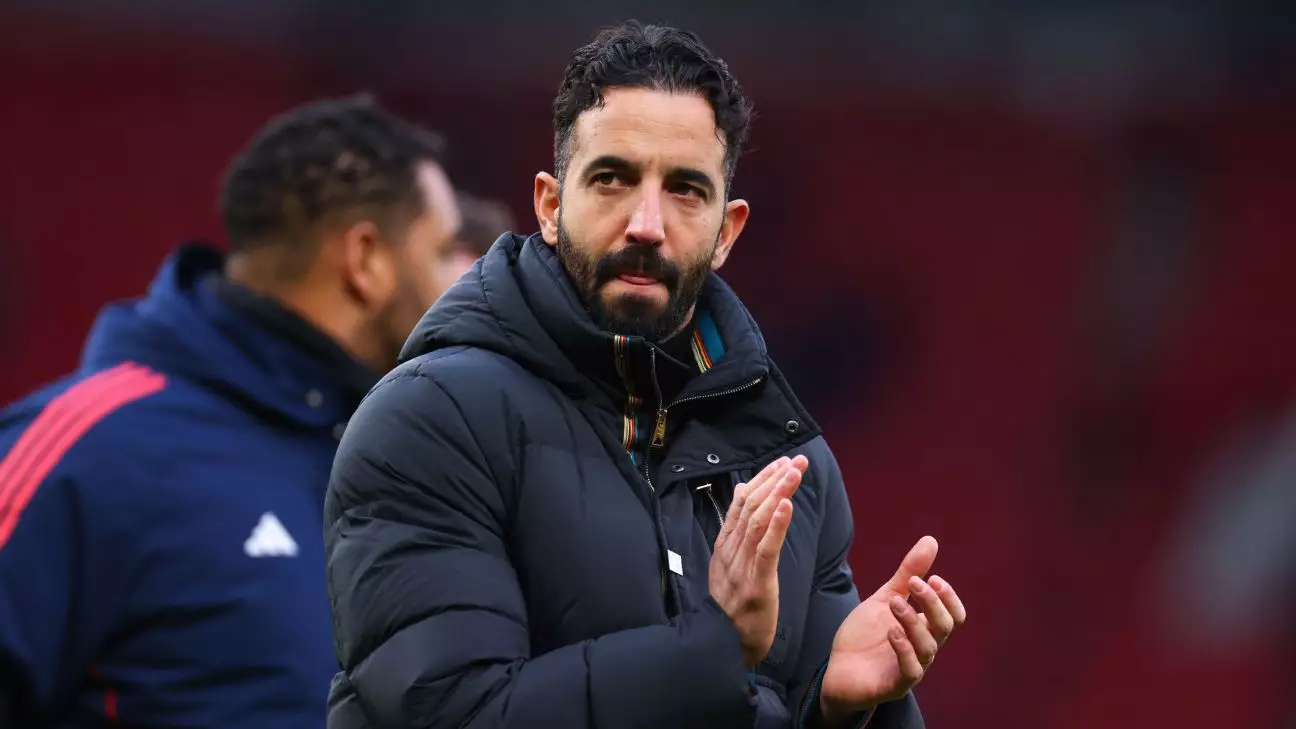Manchester United, a club steeped in history and tradition, is currently grappling with a tumultuous financial landscape and the repercussions of an underperforming team. The club’s new manager, Ruben Amorim, has vehemently remarked on the necessity of acknowledging the adverse effects that the current economic conditions have on its staff and the greater club environment. With a striking history of success that continues to fade in light of recent struggles, the urgency for change has never been more palpable.
The announcement of 250 job cuts over the summer has sent ripples of concern through the Manchester United community. These layoffs, which stem from cost-cutting initiatives spearheaded by Sir Jim Ratcliffe, have not only destabilized the livelihoods of those affected but have also created a tense atmosphere among the remaining staff and players. Amorim’s candid acknowledgment that the football team bears the responsibility for these decisions underscores a crucial point: the symbiotic relationship between on-pitch performance and the financial health of the club.
In his reflections, Amorim emphasized the need for the first team, coaches, and players to take ownership of the club’s results, connecting the dots between the team’s performance and the economic fallout that results in job insecurity and a strained environment. His statement illuminates the often-overlooked reality that a football club is not just about the players on the pitch but also encompasses an extensive network of employees who rely on the club for their livelihoods.
The current financial predicament of Manchester United, marked by a staggering £300 million in losses over the past three years, further complicates their situation. Recent years have not just seen a decline in financial performance but also a troubling trajectory in sporting achievements, with the club failing to secure a spot in the Champions League. Amorim’s comments bring to light a dilemma that many clubs face—the correlation between sporting success and financial viability.
The decision to raise ticket prices in response to these financial woes speaks volumes about the precarious balance clubs must maintain between profitability and fan engagement. For loyal supporters, escalating ticket prices can feel like a betrayal, especially in times when the team struggles on the pitch. Amorim’s acknowledgment of these pressures reflects a deeper understanding of the club’s culture and its connection to the community it represents.
For Amorim, the path forward begins with tangible improvements in performance. His statement on the imperative to win against Tottenham Hotspur encapsulates a critical juncture for the club. Each victory may provide a much-needed boost not just in terms of points but also in terms of morale—both on the pitch and amongst the club staff. The message is clear: winning games is essential not only to return the team to a competitive standing but also to stabilize the club’s finances and alleviate staff anxieties.
The urgency of the situation is matched by the need for the club to take strategic action. The communication from the management to fan groups highlighting potential failings in Financial Fair Play regulations serves as a clarion call. It reveals the precarious state of affairs and the club’s intention to take responsibility by making necessary adjustments to restore stability.
Manchester United finds itself at a crossroads, with critical decisions looming on the horizon. Ruben Amorim’s forthright comments provide a window into the challenges faced by the club and the need for a comprehensive strategy that addresses both financial and sporting objectives. The interconnectedness of results on the pitch and the broader implications for club staff cannot be overstated. Ultimately, the future of Manchester United will hinge not only on the team’s ability to perform but also on its commitment to fostering a supportive and sustainable environment for all individuals involved in this iconic institution. It is a time for reflection and immediate action—both vital for turning the tide and reinstating Manchester United as a benchmark of success in the footballing world.

